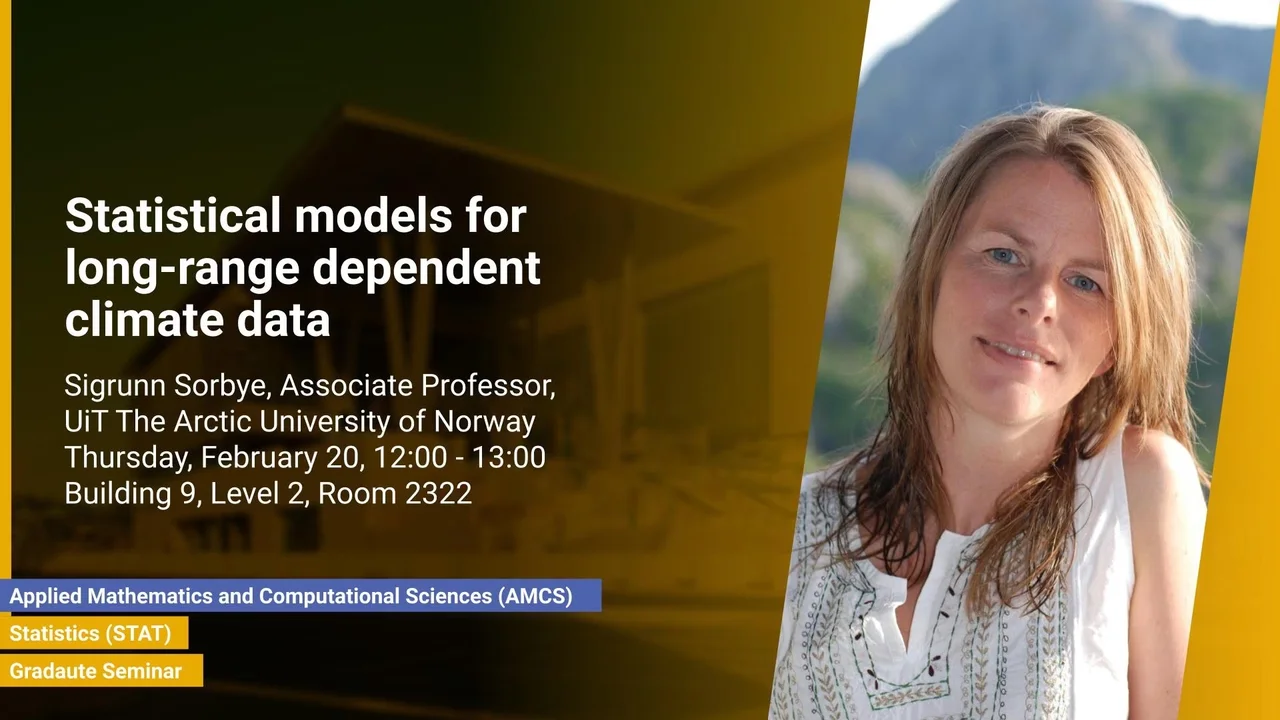
Statistical models for long-range dependent climate data
In this talk I will discuss statistical models which incorporate temperature response to the radiative forcing components. The models can be used to estimate important climate sensitivity measures and give temperature forecasts. Bayesian inference is obtained using the methodology of integrated nested Laplace approximation and Monte Carlo simulations. The resulting approach will be demonstrated in analyzing instrumental data and Earth system model ensembles.
Overview
Abstract
Increases in global mean temperatures can be explained by an imbalance between the incoming and outgoing radiation of Earth's atmosphere. This imbalance, referred to as radiative forcing, is partly due to known components like solar radiation, volcanic eruptions and emissions of greenhouse gases. The radiative forcing also includes a random component caused by turbulence and internal climate variability which is well explained as long-range dependent noise. In this talk I will discuss statistical models which incorporate temperature response to the radiative forcing components. The models can be used to estimate important climate sensitivity measures and give temperature forecasts. Bayesian inference is obtained using the methodology of integrated nested Laplace approximation and Monte Carlo simulations. The resulting approach will be demonstrated in analyzing instrumental data and Earth system model ensembles.
Brief Biography
Sigrunn Holbek Sørbye is an Associate Professor in statistics at the Department of Mathematics and Statistics, UiT The Arctic University of Norway. Her main research fields of interest are within Bayesian inference, particularly making use of the methodology of integrated nested Laplace approximations. She is especially interested in developing methods that are useful in analysing climate and ecological data sets.